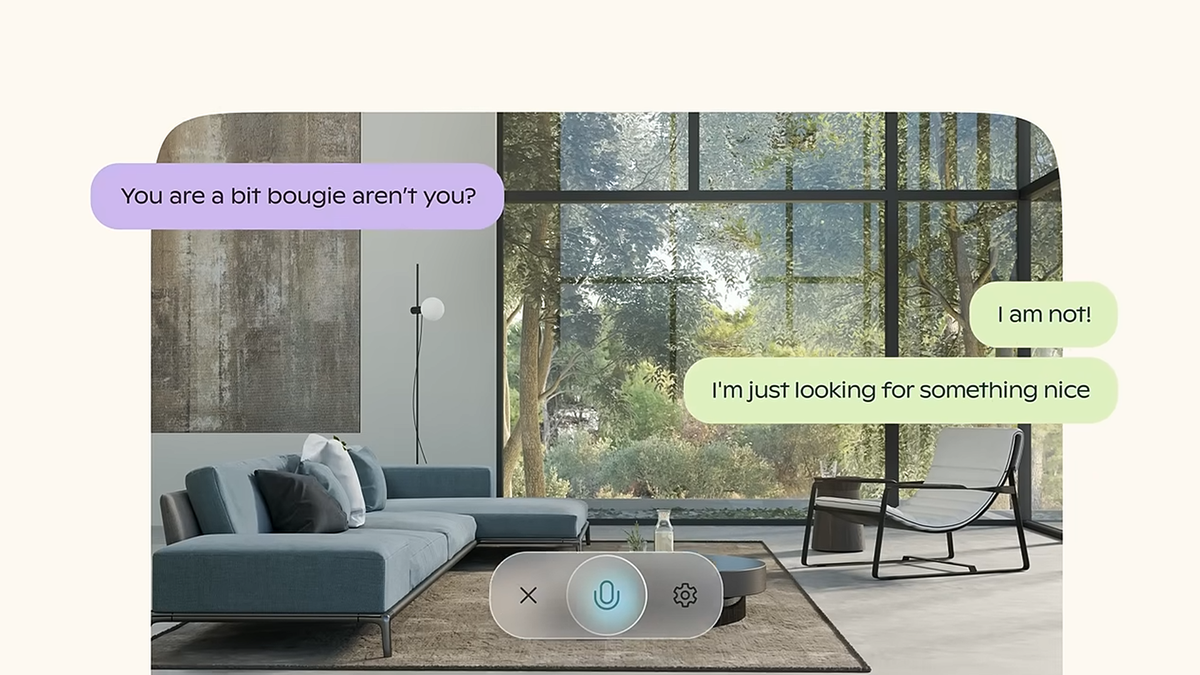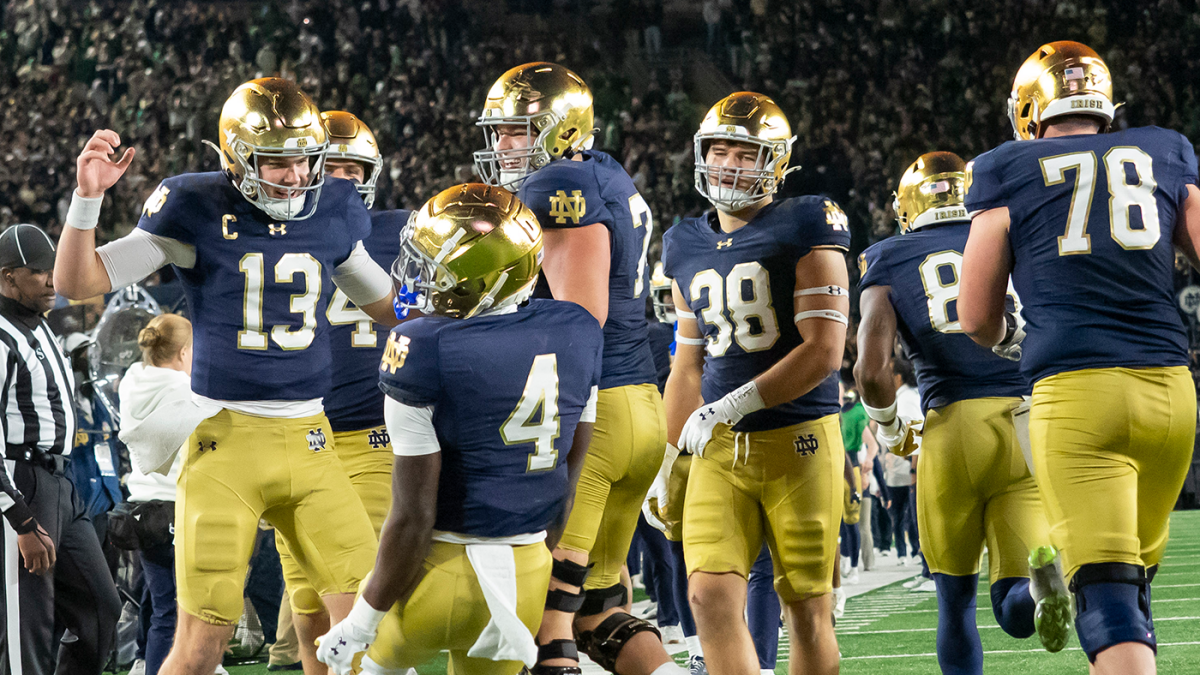Entertainment
Seth Rogen and Kathryn Hahn preview their deeply personal Hollywood satire ‘The Studio’
:max_bytes(150000):strip_icc()/the-studio-seth-rogen-02-121024-2274b1ab8fc94b1e93276bdaff73d93d.jpg)
With an entertainment empire that now includes The Boys, Teenage Mutant Ninja Turtles, Invincible, and dozens of well-known comedy projects, Seth Rogen has quietly become something of a mini-mogul — and now, he’s channeling his experience into an inside-Hollywood TV show that’s both deeply personal and ridiculously satirical.
Rogen stars as rising executive Matt Remick in The Studio, a 10-episode series for Apple TV+ that he also co-created, produced, and co-directed every episode of. Over the course of the show, Matt struggles to support the filmmakers and actors he admires while simultaneously stressing about his company’s bottom line — a constant pressure haunting all the execs that Rogen and his creative partner Evan Goldberg personally know.
Apple
“Me and Evan always are quoting a meeting we had when we were just starting, where a studio executive said literally the thing that Matt says in the pilot,” Rogen tells Entertainment Weekly. “He was giving us notes and he hung his head and was like, ‘I got into this job because I love movies, and now my job is to ruin them,’ and the more we started talking about that, we were like: that’s very tragic and sad and inherently very comedic in many ways.”
Rogen’s drive to make a personal project first began while he acted in Steven Spielberg‘s autobiographical film The Fabelmans. “I was really enamored by how personal Steven made that story,” he recalls. “And at the same time, it was kind of during the pandemic and I had just gone back deep into watching The Larry Sanders Show, which I hadn’t watched in a long time. And I started to think it would be really fun to do a TV show that is really personal and speaks to my day-to-day experience. So I just started to think, ‘What would be my version of that type of show?’ Something that is really based on my own experiences and my own interests and my own day-to-day life, but hopefully something that has enough broad appeal and interest that the average person who’s not me would like it.”
Rogen and Goldberg assembled an all-star cast to populate their fictional Continental Studios, including Catherine O’Hara as a disgraced executive-turned-producer, Bryan Cranston as the mysteriously loosy-goosey corporate overlord, Ike Barinholtz and Chase Sui Wonders as dueling lesser execs vying for power, and, in perhaps the funniest recurring role, Kathryn Hahn as a frenzied, foul-mouthed marketing specialist.
After leading Marvel’s Agatha All Along, the actress tells EW that she was eager to take on another supporting comedic role, like the ones she initially built her career on in projects like Step Brothers and Parks and Recreation. “Agatha was one of the most important experiences, but there was something nostalgic about just jumping into something like this,” she says. “That’s how I started in comedy in this business, was in these huge big ensembles and these juicy supporting parts. I didn’t realize how much I needed it. It just felt so medicinal to be a player passing the ball, in awe of people’s performances.”
Apple
Hahn says that she based her character on a number of real Hollywood businesswomen she’s encountered over the years. “I can’t even say their names, but there are a lot of birds that inspired her, a lot of amazing women in this town that just have a girl at Saks,” she says. “They come from a time in which you had to really fricking act like a dude in order to stay in the game and have this kind of patriarchal, ‘got to keep up with all the guys’ kind of vibe. There’s an amazing quiet desperation in her that I had a lot of empathy for.”
Despite the show framing him in a fairly unflattering light, Rogen expresses similar empathy for his character, too. “I’ve befriended a lot of these kinds of people over the years — I’ve been in their weddings, I go to their birthday parties, and I’ve seen that a lot of them love movies just as much as we do,” he explains. “But they are unfortunately at this inflection point of art and commerce, and they’re almost daily put in a position where they have to choose between self-preservation and enabling creative freedom. It’s something that I personally relate to at times as somebody [who] produces a lot of things, and is, in some ways, financially and logistically responsible for these things being made.”
He continues, “There’s many moments in my own life where I’ve been like, ‘Am I making these things worse? Am I making them better? Am I the guy who’s telling people not to do the thing they really want because it’s not logistically feasible or it’s outside the realm of our budgets and timelines?'”
Rogen and Goldberg set themselves up with a massive directorial challenge: Every scene in the show is a oner — one long, unbroken take (or, at least, without any visible cuts between shots, as many modern oners are seamlessly spliced together from smaller pieces). “Even if it’s not one continuous chunk of time, we really like condensed timelines,” he explains. “We like things to really be almost in real time. It felt like it captured this kind of panicked, frenzied tone that we were chasing because the camera’s never settling into a pattern. And I think because of that, it kind of keeps you on edge and you’re never quite centered or comfortable.”
Hahn was astounded by that stylistic choice. “It was so crazy ambitious, and I remember thinking, ‘I don’t know how they’re going to pull this off,'” she recalls. “Some of the scenes were really long and involved a lot of human beings, and so we rehearsed each scene like a play. We just rehearsed it and rehearsed it and rehearsed it, and you felt like, ‘Oh my God, we’re never going to move on.'”
Apple
But pulling off the seemingly impossible magic trick of each oner yielded incredible satisfaction. “When the group finally started to work and the rhythm was there and you knew where the camera was and everybody was kind of dancing together in the scene, it was so exhilarating,” Hahn says. “The vibe was so good. That kind of environment is my favorite — it was a very generous set.”
Sign up for Entertainment Weekly’s free daily newsletter to get breaking TV news, exclusive first looks, recaps, reviews, interviews with your favorite stars, and more.
Rogen hopes that the show’s technical wizardry demonstrates the value of wild stylistic swings in comedies at large. “I think in action movies, people get the big oner, and in dramas, people get the big oner, but in comedy, it’s not something people strive for that often,” he says. “And so to us, it was also an exciting way to perform comedy in a way that was unique and that was trying to muscle its way into this category where it’s like, ‘No, this deserves this type of attention.’ It shouldn’t just be reserved for stunts and for emotional upheavals. There’s nothing more exciting than seeing comedy performed live, so we emphasized that real timing — we’re not manipulating any of it. It’s in camera.”
Hahn thinks that the show captures the never-ending anxiety of the contemporary entertainment industry. “There’s this constant threat of, ‘Is my job going to go away tomorrow?’, and also ‘Is what I’m doing meaningful? Is this what I started out believing in? Have I turned into the cynic I didn’t want to be when I was in my twenties?'” she says. “So much of that is in this show. And it’s just so f—ing hilarious.”
The Studio premieres its first two episodes on March 26 on Apple TV+.










